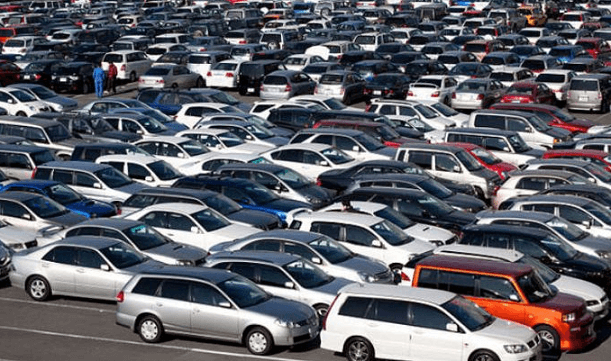The Nigerian federal government is set to introduce a “green surcharge on imported vehicles” as part of its ambitious plan to boost tax revenues.
This announcement was made in the recently released Medium Term Expenditure Framework (MTEF), which outlines a hefty 2024 budget of N26 trillion.
Emphasizing Customs Revenue Enhancement and Tax Targets
The green surcharge is a key component of the government’s strategy to generate approximately N2.6 trillion in net taxes through Nigerian Customs.
The MTEF document lays out a total of 18 strategies aimed at enhancing Customs revenue collection between 2024 and 2026, with point XIII focusing on the introduction of a green surcharge on imported vehicles.
- “Introduction of green surcharge on imported vehicles and excise duty on gambling and lotteries including online betting;”
The specific nature of this green surcharge remains somewhat elusive, as the document does not provide a detailed explanation.
However, earlier in the year, the Buhari administration had hinted at the introduction of additional taxes for imported vehicles.
Unraveling the Nuances: Current Taxes vs. Implications of the Green Surcharge
To this end, the Federal Government had already implemented the Import Adjustment Tax (IAT) levy on motor vehicles, applying a 2% rate to vehicles with 2-litre engines (ranging from 2000 cc to 3999 cc) and a 4% rate to vehicles with engines exceeding 4 litres (4000 cc and above), effective from June 1, 2023.
Furthermore, starting from the same date, certain categories of vehicles were granted exemptions, including vehicles with engines below 2000cc, mass transit buses, electric vehicles, and locally manufactured vehicles.
It’s worth noting that there appears to be some ambiguity regarding whether the taxes mentioned above are synonymous with the green surcharge, a matter that Nairametrics research aims to clarify.
Analyzing the Significance: Government’s Fiscal Intentions and Environmental Impacts
According to data from the National Bureau of Statistics, Nigeria’s expenditure on vehicles, aircraft, and related items, as well as vessels, totalled approximately N1.68 trillion.
This move by the federal government to introduce a green surcharge on imported vehicles underscores its commitment to boosting revenue generation and possibly promoting more environmentally friendly transportation options.
However, further details about the nature and implications of this surcharge remain eagerly awaited.




